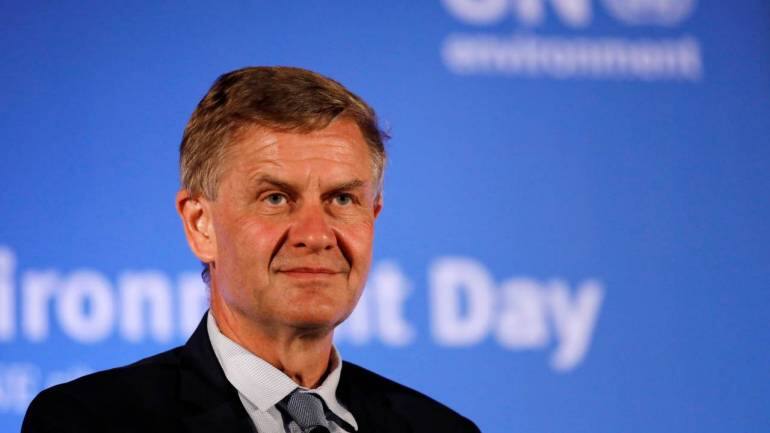Former UN Environment Program executive director, Erik Solheim, recently commended India’s unique position as a trailblazer in demonstrating that environmental sustainability and robust economic growth can coexist. In a telephonic interview with IANS, Solheim underscored India’s proactive stance against climate change and its unwavering commitment to environmental protection under Prime Minister Narendra Modi’s leadership.
Solheim pointed to Modi’s strategic green initiatives, emphasizing efforts in green hydrogen, green batteries, and electric cars. These initiatives have catapulted India to the forefront of the global fight for climate action. Notably, the success story extends beyond technological advancements, as Solheim highlighted that the number of tigers in India has doubled over the last two decades.
Nature’s Crucial Role
Solheim, an experienced peace negotiator, stressed the critical role nature and biodiversity play in mitigating and adapting to global crises. He highlighted the protective function of green landscapes against climate disasters and their ability to absorb emissions. Drawing comparisons with China, the world’s leading tree-planting nation, Solheim acknowledged significant progress in India. Examples include Madhya Pradesh Chief Minister Shivraj Singh Chouhan’s daily tree planting initiative and Telangana’s commendable seven per cent increase in tree cover.
Addressing the twin crises of climate change and biodiversity loss, Solheim emphasized the increasing global focus on forest conservation and restoration.
Mobilizing Governments and Businesses
Solheim emphasized the need for coordinated efforts between governments and businesses. Notable examples include Andhra Pradesh’s successful prioritization of small-scale, green, and eco-friendly farming. The chief minister’s tree planting initiative in Madhya Pradesh and other progressive measures in states like Tamil Nadu and Telangana highlight India’s commitment to sustainable practices.
Linking environmental protection with emission reduction, Solheim called for a closer integration of agendas to foster increased engagement and inspiration. Recognizing the interconnectedness of protecting Mother Earth and combatting pollution and emissions, he stressed the need for a holistic approach.
Addressing the financial aspect, Solheim underscored the historical responsibility of developed nations in causing the climate crisis. He urged developed countries, particularly North America and Europe, to fulfil their promises of climate and nature finance for developing nations. Pointing to the significant disparity in per capita emissions between the US and India, Solheim advocated for a fair and equitable distribution of responsibilities in tackling the global climate crisis.
A Global Inspiration
As the world gears up for the upcoming UN COP28 climate summit in Dubai, Solheim’s insights shed light on India’s commendable efforts. The nation emerges as a global inspiration, showcasing that a harmonious balance between environmental sustainability and economic development is not only possible but also crucial for a sustainable future.


